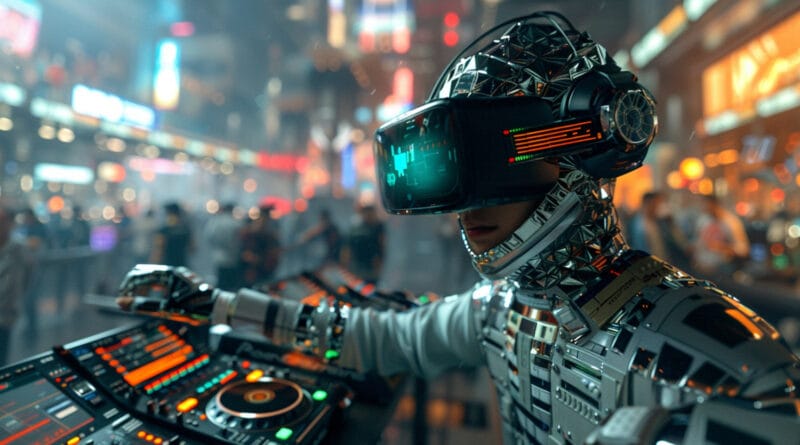Generative AI in Gaming: What It Means for the Future of Interactive Entertainment
The gaming industry has undergone a remarkable transformation over the last few decades, from pixelated 8-bit graphics to stunningly realistic virtual worlds. One of the most exciting advancements in this evolution is the emergence of generative AI in gaming. This technology is set to redefine the gaming experience, offering innovative solutions for developers and players alike. In this blog, we’ll explore how generative AI is shaping the future of interactive entertainment and touch on the role of adaptive AI in video games.
Table of Contents
Understanding Generative AI
Generative AI refers to algorithms that can create new content, including images, text, and audio, based on input data. Unlike traditional AI, which often relies on predefined rules and decision trees, generative AI can learn from vast amounts of data and generate unique outputs. In gaming, this technology can be leveraged for everything from creating dynamic environments to generating realistic character dialogues.
The Impact of Generative AI on Game Development
Dynamic Content Creation
One of the most significant advantages of generative AI is its ability to create dynamic content. Developers can utilize generative algorithms to design environments that change and evolve based on player interactions. This means that no two gaming experiences are the same, enhancing replayability and keeping players engaged.
Procedural Generation of Levels
Generative AI allows for the procedural generation of game levels. By analyzing player behavior and preferences, AI can create levels that are tailored to individual play styles. For example, in a platformer game, the AI can generate levels that adapt to the player’s skill level, providing a challenging yet achievable experience.
Enhanced Storytelling
Storytelling in games can also benefit from generative AI. By using AI algorithms, developers can create complex narratives that respond to player choices in real-time. This leads to branching storylines that feel more personalized and immersive, making players feel like their decisions truly matter.
Realistic Character Interactions
Another exciting application of generative AI is in character development. AI can generate unique dialogues and responses for non-playable characters (NPCs), allowing for more realistic interactions. This technology can analyze the context of conversations and player actions, providing NPCs with the ability to react intelligently and organically.
The Role of Adaptive AI in Video Games
While generative AI focuses on creating new content, adaptive AI in video games enhances the gaming experience by responding to player actions and behaviors in real time. This technology allows for smarter NPCs that can learn from players, adjusting their strategies and tactics based on the player’s skill level.
Benefits of Adaptive AI:
- Personalized Experiences: Adaptive AI ensures that each player’s experience is unique, adjusting game difficulty and challenges based on performance.
- Improved Gameplay: By providing intelligent responses, adaptive AI can lead to more engaging gameplay, where players feel challenged but not overwhelmed.
- Learning from Players: Adaptive AI can analyze player choices over time, allowing it to become increasingly sophisticated and tailored to individual preferences.
The Future of Generative AI in Gaming
As generative AI continues to evolve, its potential applications in gaming are virtually limitless. Here are a few trends to watch for in the future:
More Immersive Worlds
Future games will likely feature worlds that are not only visually stunning but also rich in detail and depth. Generative AI can help create environments that react to player actions, weather changes, and time of day, making for a truly immersive experience.
AI-Driven Game Design Tools
Developers are already beginning to use generative AI in their design tools. This means that smaller studios can compete with larger companies by leveraging AI to streamline their development processes, reducing the time and resources needed to create high-quality games.
Community-Created Content
Generative AI can enable players to contribute to game worlds by creating their own content, such as levels, quests, or even characters. This collaborative approach fosters a strong sense of community and keeps the game fresh with new user-generated content.
Real-Time Adaptation to Trends
The gaming industry is fast-paced, with trends changing rapidly. Generative AI can help developers keep up by generating content that aligns with current trends, ensuring that games remain relevant and appealing to players.
Conclusion
The integration of generative AI in gaming is transforming the industry, offering exciting possibilities for developers and players alike. From creating dynamic environments and personalized narratives to enhancing character interactions and gameplay, the impact of generative AI is profound. Coupled with adaptive AI, the future of interactive entertainment looks promising as games become more responsive, immersive, and tailored to individual player experiences.
As technology continues to advance, we can expect even more innovations in the gaming world. The combination of generative and adaptive AI will not only redefine how games are developed but also how players experience them. This new era of gaming promises to provide richer, more engaging experiences that will captivate players for years to come. Whether you’re a developer looking to harness these technologies or a gamer eager for what lies ahead, the future of interactive entertainment is bright and full of potential, especially with the support of a generative AI development company that can help bring these groundbreaking ideas to life.
Read More………………….



